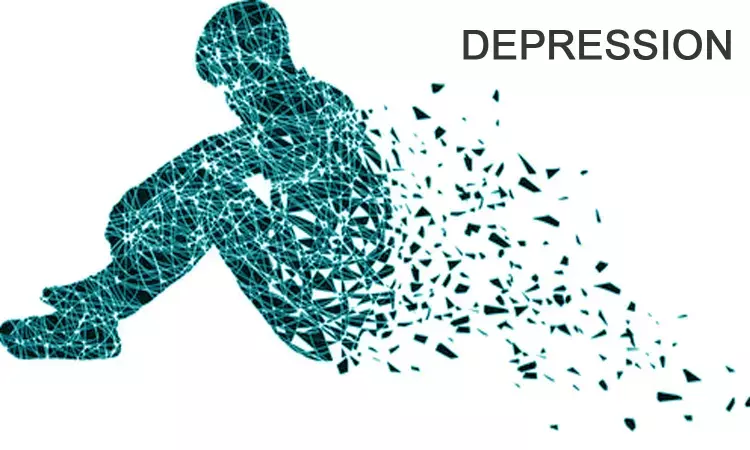- Home
- Medical news & Guidelines
- Anesthesiology
- Cardiology and CTVS
- Critical Care
- Dentistry
- Dermatology
- Diabetes and Endocrinology
- ENT
- Gastroenterology
- Medicine
- Nephrology
- Neurology
- Obstretics-Gynaecology
- Oncology
- Ophthalmology
- Orthopaedics
- Pediatrics-Neonatology
- Psychiatry
- Pulmonology
- Radiology
- Surgery
- Urology
- Laboratory Medicine
- Diet
- Nursing
- Paramedical
- Physiotherapy
- Health news
- Fact Check
- Bone Health Fact Check
- Brain Health Fact Check
- Cancer Related Fact Check
- Child Care Fact Check
- Dental and oral health fact check
- Diabetes and metabolic health fact check
- Diet and Nutrition Fact Check
- Eye and ENT Care Fact Check
- Fitness fact check
- Gut health fact check
- Heart health fact check
- Kidney health fact check
- Medical education fact check
- Men's health fact check
- Respiratory fact check
- Skin and hair care fact check
- Vaccine and Immunization fact check
- Women's health fact check
- AYUSH
- State News
- Andaman and Nicobar Islands
- Andhra Pradesh
- Arunachal Pradesh
- Assam
- Bihar
- Chandigarh
- Chattisgarh
- Dadra and Nagar Haveli
- Daman and Diu
- Delhi
- Goa
- Gujarat
- Haryana
- Himachal Pradesh
- Jammu & Kashmir
- Jharkhand
- Karnataka
- Kerala
- Ladakh
- Lakshadweep
- Madhya Pradesh
- Maharashtra
- Manipur
- Meghalaya
- Mizoram
- Nagaland
- Odisha
- Puducherry
- Punjab
- Rajasthan
- Sikkim
- Tamil Nadu
- Telangana
- Tripura
- Uttar Pradesh
- Uttrakhand
- West Bengal
- Medical Education
- Industry
ECT more effective than ketamine in severe depression

Researchers at Lund University in Sweden have compared the effects of intravenous ketamine treatment with ECT treatment in severe depression. The results support the view that ketamine is a possible treatment, but also show that ECT treatment helps more people.
In recent years, ketamine has emerged as a new treatment for depression, after studies have shown it to be a fast-acting antidepressant.
"However, the previous studies have all been small with a short follow-up period, so this is the first major randomized clinical study", says Pouya Movahed Rad, researcher at Lund University and consultant psychiatrist, who led the study.
The researchers examined the antidepressant effect of ketamine and compared it with ECT (electroconvulsive therapy), currently the preferred treatment for very severe depression.
"Ketamine is a controlled drug and needs to be given under supervision, while ECT can cause temporary memory side effects and is resource-intensive as the patient needs to be anesthetized", says Pouya Movahed Rad.
A total of 63 percent of the patients in the ECT group recovered after the treatment, compared with 46 percent among those who received racemic ketamine intravenously.
While both ECT and ketamine can successfully treat a severely depressed patient, they may not always cure the underlying condition, as depression is generally recurrent. Approximately as large a proportion in the ECT group as in the ketamine group had a relapse within 12 months.
"We did not see the rapid effect of ketamine that other studies have shown. Instead, our results indicate that the effect is cumulative, and increases with the number of treatments. Older people generally responded less well to ketamine, while younger people responded as well to ECT as to ketamine", says Pouya Movahed Rad.
Six treatment sessions were required for both treatments in order to have a full recovery. More participants in the ketamine treatment chose to leave the study, than in the group treated with ECT.
"The group we studied had been offered ECT, but about half of them were now randomized to participate in the intravenous ketamine group. This may have been important because some of the participants chose to discontinue the ketamine treatment prematurely", says Pouya Movahed Rad.
In the group that received ECT, however, it was somewhat more common with persistent memory difficulties.
"Our results suggest that intravenous ketamine does not cause serious side effects in this patient group. No treatment should be overused, but ketamine should be an acceptable alternative for patients with severe depression. We want to continue by studying the blood samples and other data that we have collected, to see if we can find markers that help us choose the right treatment for the right patient", concludes Pouya Movahed Rad.
https://academic.oup.com/ijnp/advance-article/doi/10.1093/ijnp/pyab088/6451171
Hina Zahid Joined Medical Dialogue in 2017 with a passion to work as a Reporter. She coordinates with various national and international journals and association and covers all the stories related to Medical guidelines, Medical Journals, rare medical surgeries as well as all the updates in the medical field. Email: editorial@medicaldialogues.in. Contact no. 011-43720751
Dr Kamal Kant Kohli-MBBS, DTCD- a chest specialist with more than 30 years of practice and a flair for writing clinical articles, Dr Kamal Kant Kohli joined Medical Dialogues as a Chief Editor of Medical News. Besides writing articles, as an editor, he proofreads and verifies all the medical content published on Medical Dialogues including those coming from journals, studies,medical conferences,guidelines etc. Email: drkohli@medicaldialogues.in. Contact no. 011-43720751


